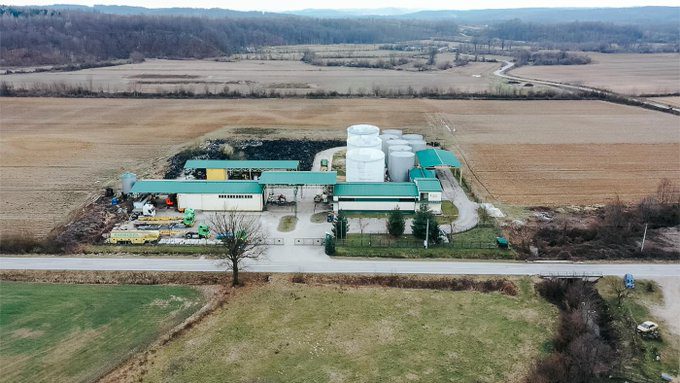
One of the EU’s flagship green policies, the promotion of biofuels, is in the spotlight this week after a new report documenting the process by which one Bosnian company amassed a fortune by fraudulently passing off low-grade imports as next-generation biofuel.
Europe is currently being flooded by bogus biofuel products spurred on by badly formulated EU policies that have artificially inflated demand and created a market for scammers.
This week’s report was produced by the anti-corruption investigative group OCCRP and describes the methods used by one major Bosnian supplier, Sistem Ecologica, in passing off biodiesel to largely Dutch and Belgian energy companies under false pretences.
Sistem Ecologica, which was launched with great fanfare by the Bosnian government, claims to refine soy-based cooking oil at its rural refinery in Srpska, which it then exports to Northern Europe. Authorities, however, allege that their process facility is largely unused and just a front as investigators discovered the Bosnians simply pass off the soy-based cooking oil as high-grade biodiesel.
EU subsidies disincentive the manufacture of cheap soy-based biofuel products such as what the Bosnians are selling due to fears of deforestation. Sistem Ecologica and their European partners benefited from various subsidy schemes by failing to properly declare their products to customs officials, using forged certificates.
The criminal network connected to Sistem Ecologica has created what Belgian customs authorities dub a “biodiesel mafia” and has so far implicated 17 European companies in nine countries, leading to multiple high-profile arrests including one Dutch fuel merchant Cornelis Bunschoten ranked as one of the Netherland’s richest individuals.
The report also describes how it is a running joke within Commission circles that EU biofuel certificates are seen as laughable and often forged by criminal groups hoping to take advantage of subsidies. According to findings, most cargoes of biodiesel entering the EU are rarely checked by customs officials.
Biofuels are created by the decomposition of organic biomass material such as vegetable oils and are a key pillar of the EU’s Green Transition plans as the Commission aspires to 14% of all transport being powered by biofuels by 2030. The EU mandates that fuel companies blend biofuels into their usual energy mix, with new regulations on airline emissions requiring companies to increase their biofuel consumption.
The promotion of biofuels has also resulted in a system of import fraud from China, as companies utilise food waste to feed European demand.
The EU has had a 15-year love affair with biofuels despite repeated warnings from environmentalists and agricultural groups that biofuel production negatively impacts the environment because farmers convert farmland to grow biomass.
The EU Commission did not respond to a request for comment regarding the failings of the biofuel certificate system.
